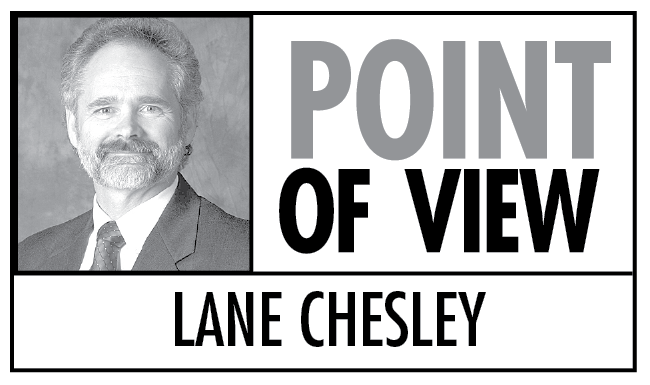The realty association president’s smackdown of city officials and zoning regulations is unfair and misleading.
In her Oct. 17 Point of View article, Debra Leisek shared her frustration and opinions about city administrators, elected and appointed officials and the zoning issues involved with the Bay View Inn property owned by the late Dennis Novak.
I hope that my comments can clarify some of the issues surrounding nonconforming uses, highlight the professionalism of our city officials and offer some ideas on how to address the current issue with the Bay View Inn. I served on the planning commission for four years and am familiar with the staff and city code.
The term “nonconforming uses” is not a derogatory term, to be spoken as if one has a foul taste in their mouth. In fact, it is just the opposite. The purpose of nonconforming uses is to preserve economic value not eradicate it.
The Bay View Inn is located in the Rural Residential Zoning District and was operating prior to the city adopting the standards of the Rural Residential District. The core value that led to the creation of the district was the desire to set aside lands with “elbow room” and privacy to live and raise our families. In order to do this, other zoning districts were created to provide places for higher density and commercial development.
So, how do we recognize and protect land and business owners with uses that are not included in the zoning district standards? The planning tool of nonconforming uses has been developed (nation wide) to recognize the legitimacy of a use and allow it to continue until the use has been “discontinued.”
Typically, most zoning codes define “discontinued” as a period of 12 consecutive months where the use ceased to exist. And, once the use is discontinued, it cannot be brought back. In the Bay View Inn matter, the hotel has ceased to operate for 12 consecutive months since Dennis’ death. Our code does not address the time period that it could take to transfer assets to heirs.
If we look at the Anchorage code section titled: “Overcoming Presumption of Abandonment,” there exists code provisions to allow, under certain conditions, for an owner to demonstrate “intent” to continue the use as a way to overcome a ruling of abandoning or discontinuing the use.
More specifically, and again under specific conditions, it is possible that the time period it takes to sell or lease a property or business would not count against the 12 consecutive month rule. It is possible that Homer’s city attorney could review the Anchorage code language and recommend a version to the city council that could be adopted into our city code.
A second option to consider is creating a sub-district within the Rural Residential District that would identify specific areas where hotels and motels, of up to a certain capacity, could be listed as a “conditional use.”As a conditional use the city and planning commission can work to limit negative impacts to surrounding lots or even outright deny an
application. In order for this approach to be legal, lands other than the Bay View Inn property must be considered eligible for inclusion in the sub-district. For example, if the city took an action that only addressed the Bay View Inn property, the action could be considered “spot
zoning” which is illegal. To avoid a charge of spot zoning, the action must be applied more broadly within the district.
Finally, I want to commend our council, commission members and staff for the work that they do. It seems to me that this Point of View column has evolved into a regular rant forum against those that do the work of our city. At no point in time has anyone ever wanted to make Homer into Santa Monica.
Are the employees and volunteers that do the city’s work perfect? No. Are all of their decisions the correct ones? No. Do they give us their best efforts to get creative and help us out? Yes. And most importantly, do they care about Homer and its citizens? Absolutely.
Lane Chesley is a resident of Homer and founder of AL SHAMS Project, addressing environmental degradation, food security and economic development on the Kenya/Somali coasts through implementation of best commercial fishing practices.


